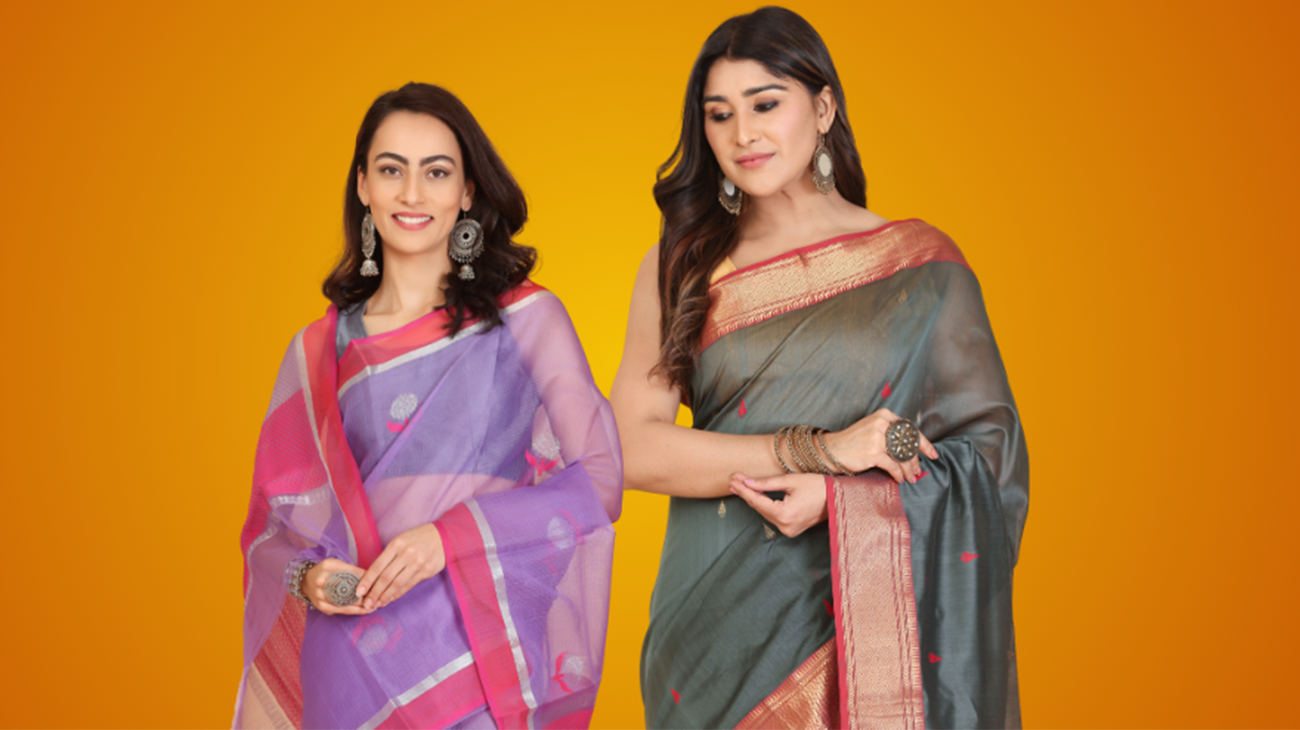MAHESHWAR, CLUSTERS



MAHESHWAR, MADHYA PRADESH
Introduced by Rajmata Ahilyabai Holkar in 1767, Maheshwari weaves have traveled a long journey. Craftsmen from across the country were brought in to settle in Maheshwar, resulting in the expansion of the existing textile produce to include sarees and other clothing. This intervention by the royal family led to the flourishing craft of Maheshwari sarees. .
Know your Maheshwari:
Maheshwari sarees are known for their vibrant colors, distinctive patterns, including stripes, checks and floral borders. Authentic Maheshwari sarees are usually inspired by the grand temples, palaces and forts of Madhya Pradesh, with influences from the royal family. Some of these popular designs include the Mat pattern, which is also known as ‘chattai’ pattern, along with ‘Chameli ka phool’ which is inspired by the Chameli flower. One can also see the ‘Eent’ pattern which is basically a brick and ‘heera’, which is a diamond.
There are 5 major categories of Maheshwari Sarees namely Chandrakala, Baingani Chandrakala, Chandratara, Beli and Parbi. The Chandrakala and Baingani Chandrakala are the plain kind, whereas the Chandratara, Beli and Parbi fall under the striped or checked technique. Since Maheshwari saree is woven in both Silk and Cotton, it can be adorned for both casual and formal events.




